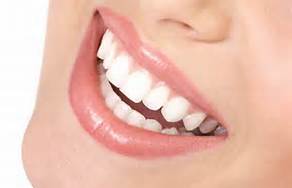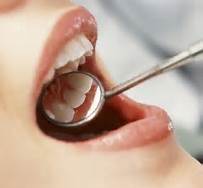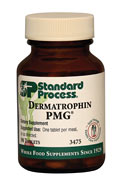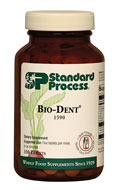What You Need to Know About
Your Teeth and Gums
Your Teeth and Gums

|
I will tell you who you are.” Jean Anthelme Brillat-Savarin |
Dental health is not about how many times you visit your dentist. Dentists do not cause dental health. All a dentist can do is monitoring how your dental health is progressing. Dental health refers to the condition of your teeth and gums. If your teeth do not develop new cavities, then your teeth are healthy. If your gums are firm, and pink, and do not bleed, and do not have deep pockets, then your gums are healthy. Typically as we age our dental health decreases. Our gum pockets get bigger and tooth cavities increase. Slowly over time dental health decreases, more teeth are affected with tooth decay.
Dentistry has failed the general public because with every new dental treatment, the patient is losing irreplaceable tooth enamel and dentine. Studies on dentistry have shown that dentists are aggressively over treating. By the admission of the dental field, fillings have a limited life span. Conventional dentistry therefore does not offer a real cure.
By the time the average person is in their 40's, almost half of their teeth are affected by decay, and the problem continues to worsen because the root cause is not addressed. As we age the dental treatments that people require become more severe. First fillings and then crowns. Later, root canals and tooth extractions are the only prescribed treatments. We pay more and more dental dollars and still continue to lose our health and our teeth. One challenge for people is the availability of truthful and accurate knowledge as to what changes really work to help stop cavities fast.
For the past 130 years modern society has blamed germs and what germs eat as the exclusive cause of tooth decay. The remedies prescribed have been fluoride, tooth brushing and tooth flossing. When these fail, you must submit to drilling and filling. Yet these prescribed methods do not seem to work for a significant portion of the population.
 |
This has been proven in both animal and laboratory experiments. There are compelling reasons for the industry of dentistry to be blind to a nutritional or preventative paradigm because it would require changing how they do business. |
The field of dentistry admits that it cannot stop the attack of tooth decay. They cannot see outside their overly narrow paradigms and definitions. In order to understand how to stop tooth decay, the field has to be open to new belief systems which have been previously discarded and rejected.
Dentist Weston Price was the chief of research at the National Dental Association, later renamed to the esteemed American Dental Association. Dr. Price showed the world how to heal cavities with nutrition. His form of treatment could "control well over 95 percent of dental caries." Dr. Price challenged his fellow dentists and asked them to refer their worst possible cases to him. Of 17 of these worst-case individuals with severe cavities, only one patient developed new cavities on Dr. Price's nutritional program, a recurrence rate of 0.4%.
Dr. Weston A. Price wrote a lot about this in his book "Nutrition and Physical Degeneration" and he proved that nutrients reversed dental problems. He took thousands of x-rays of people's teeth and photos of people to show healthy broad arches, little or no cavities, and sound bone structure versus those whose arches were too narrow, who had many cavities, and longer thinner bones. He analyzed foods of all of the groups he studied by sending back foods to his laboratory in the U.S. for analysis.
Dr. Price writes about mission children that he fed one nutrient-dense meal per day 6 days a week along with 1/2 teaspoon of butter oil and 1/2 teaspoon of high vitamin cod liver oil. The rest of the time the children's diet was horrible, including coffee with lots of sugar, pancakes, syrup, etc. Dr. Price proved with photos that within months the children stopped getting cavities and the cavities they had before were glossed over with brand new enamel (dentin) stopping any further decay. That was in addition to dramatic improvements in their overall health, attitudes, cooperation in learning, and higher grades!
Our modern displacing diet is the cause of tooth decay. Preventing tooth decay has little to do with tooth brushing and fluoridating water. If these strategies worked, people would have fewer and fewer cavities because most people brush frequently and almost 70% of the United States now have fluoridated water.
As long as dentistry keeps thinking and feeling the same way about tooth cavities, they will never find a real cure. While each dentist is a little different, there are two real world explanations of why the dental industry holds on to limiting and unfortunately unhelpful belief systems about healing cavities. Dentists are educated in an old-fashioned way that focuses exclusively on surgical intervention. On one hand dentists are supposed to be experts in the mouth. But on the other hand they are limited to surgical or chemical interventions. Dental schools do not teach about tooth demineralization with food.
Dentistry is a $100,000,000,000 (that's 100 Billion) industry. I do not know why anyone involved in the industry would want to shake the boat. It is more convenient to just let things be, and make a handy profit. Please note I am speaking in generalities here, and there are of course exceptions to these points.
"Plaque, a sticky film of bacteria, constantly forms on your teeth. When you eat or drink foods containing sugars or starches, the bacteria in plaque produce acids that attack tooth enamel. The stickiness of the plaque keeps these acids in contact with your teeth and after many such attacks, the enamel can break down and a cavity forms. Tooth decay is a destruction of the tooth enamel. It occurs when foods containing carbohydrates (sugars and starches) such as milk, pop, raisins, cakes or candy are frequently left on the teeth. Bacteria that live in the mouth thrive on these foods, producing acids as a result. Over a period of time, these acids destroy tooth enamel, resulting in tooth decay."
Source: American Dental Association
- Brush your teeth twice a day with fluoride toothpaste.
- Clean between teeth daily with floss or an interdental cleaner.
- Eat a balanced diet and limit between-meal snacks.
- Visit your dentist regularly for professional cleanings and oral exams.
- Ask your dentist about dental sealants, a protective plastic coating that can be applied to the chewing surfaces of the back teeth where decay often starts.
The Problem with the ADA theory is this, does not work. Cavities continue to increase with age; they are not prevented by these methods. Typically a patient is blamed for cavities by accusing them of not brushing their teeth enough, or for not doing all the special dental treatments, like dental sealants and fluoride.
A vicious cycle is created. The patient tries different things that do not work, and then they are sold more and more dental products. Not all people have reoccurring tooth decay, but many do.
A growing body of evidence indicates that many types of chemicals are bad for our health, and bad for our children's health. Many dental treatments use these hazardous chemicals, like fluoride or dental sealants. I do not see how putting chemicals on our teeth, or in our bodies, is going to stop a problem caused by a faulty diet and lifestyle.












